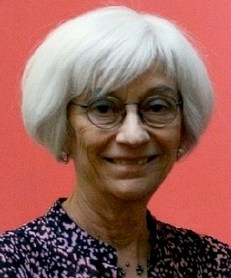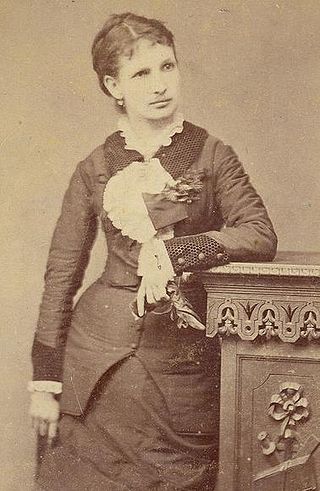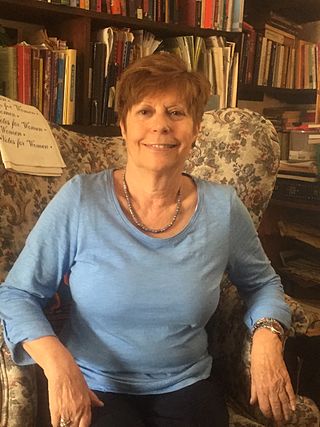Women's studies is an academic field that draws on feminist and interdisciplinary methods to place women's lives and experiences at the center of study, while examining social and cultural constructs of gender; systems of privilege and oppression; and the relationships between power and gender as they intersect with other identities and social locations such as race, sexual orientation, socio-economic class, and disability.

As established in the Colombian Constitution of 1991, women in Colombia have the right to bodily integrity and autonomy; to vote ; to hold public office; to work; to fair wages or equal pay; to own property; to receive an education; to serve in the military in certain duties, but are excluded from combat arms units; to enter into legal contracts; and to have marital, parental and religious rights. Women's rights in Colombia have been gradually developing since the early 20th Century.
Consuelo Hernández is a Colombian American poet, scholar, literary critic and associate professor of Latin American studies at American University since 1995.

Rosalba C. Todaro was an economist and Senior Researcher at the Centro de Estudios de la Mujer in Santiago, Chile, and was the president of the International Association for Feminist Economics (IAFFE) from 2011 to 2012.
Alberto Arredondo Gutiérrez was a Cuban journalist and economist.
Margarita García Flores was a Mexican lawyer, activist, writer and politician; she was also involved in women's suffrage. García cofounded Fem magazine with Alaíde Foppa in 1976; it was the first Latin American feminist magazine. She served as director of Universitarios and Prensa, as well as the publications of National Autonomous University of Mexico. García was also a delegate from Cuajimalpa (1976–80), deputy for III Distrito Electoral Federal de Nuevo León (1973–76), and a deputy for Distrito IV de Nuevo León (1955–58).

María Julieta Kirkwood Bañados was a Chilean sociologist, political scientist, university professor and feminist activist. She is considered one of the founders and impellers of the Chilean feminist movement in the 1980s. She is considered the forerunner of Gender studies in Chile.
Sofía Sara Hübner Bezanilla, also known as Sara Hübner de Fresno and by her literary pseudonym Magda Sudermann, was a Chilean feminist writer, journalist, and editor.
María Luisa Gómez de la Torre Páez was an Ecuadorian feminist, educator, and activist. She was a pioneer in the struggle for the rights of the indigenous peoples and peasants in Ecuador. She was the first woman to serve as a teacher for boys in Quito.

Adriana Blanca Cristina Muñoz d'Albora is a Chilean sociologist and politician who serves as a member of the Senate of Chile, representing the 4th constituency of the Coquimbo Region. She previously served as president of the Senate of Chile.

Agripina Montes del Valle also known as "Azucena del Valle", "Porcia" and "La Musa del Tequendama", was a Colombian poet, writer, and intellectual.
Clyde Soto Badaui is a Paraguayan feminist, psychologist and human rights activist.

Montserrat Sagot Rodríguez is a Costa Rican sociologist especially known for her work on violence against women and girls. She was a pioneer in research on femicide in Central America. In 2010, she published the first research on femicide in Costa Rica.

Ana Lau Jaiven is a Mexican feminist, academic and researcher at the UAM Azcapotzalco. She began studying Mexican feminist movements in 1980, and has gone on to study women in the Mexican Revolution, and women's movements and groups throughout 20th-century Mexican history. Francesca Gargallo places her in a group of Latin American feminist historians alongside Julia Tuñón, Ana Arroba, Edda Gabiola and Araceli Barbosa.
Olga Ida Magdalena Grau Duhart is a contemporary Chilean writer, full professor, and philosopher, a specialist in gender, sexuality, philosophy, education, and literature.
Magdalena León is a Colombian feminist sociologist specializing in social research and women's studies. Trained with the founders of Colombian sociology, Orlando Fals Borda and Camilo Torres Restrepo, she transferred the rhetorical and discursive framework to the analysis of empirical reality using the survey, systematization, and data analysis to learn the reality on the ground, not only of Colombia but also from Latin America.
Donalda Jeanine "Donny" Meertens is a Dutch academic, Colombian policy and development advisor, and a co-founder of the Programa de Estudios de Género, Mujer y Desarrollo at the National University of Colombia. Educated in the Netherlands, Meertens studied land rights in Colombia becoming interested in how the exploitation of rural peasants increased violence in the country. She moved to Colombia to assist with development programs in the early 1990s and has held a number of posts with United Nations agencies. She also served as the research coordinator for the Comisión Nacional de Reparación y Reconciliación. She has worked as a professor at the National University of Colombia and the Pontificia Universidad Javeriana. Her work has centered on rural displacement, gender inequalities, and the links between violence and the land.

Teresita de Barbieri García, was an Uruguayan feminist sociologist, academic, and researcher based in Mexico. A researcher in social sciences and gender studies, she was a pioneer in research on the condition of women in Latin America from the Institute of Social Research of the National Autonomous University of Mexico (UNAM). A socialist militant, she survived the 1973 Chilean coup d'état and went into exile in Mexico where she developed her research career. A sociologist at the Latin American Faculty of Social Sciences (FLACSO), she researched the daily life of women, the Latin American feminist movement, reproductive health, secularism and, in particular, population and development. She wrote articles for various newspapers and magazines, including Fem magazine and the "La Doble Jornada supplement" of La Jornada newspaper, as well as for Cimacnoticias (CIMAC).
Virginia Guzmán Barcos is a Chilean psychologist and sociologist, who was a co-founder of the Flora Tristán Peruvian Women's Center. After completing studies at the Pontifical Catholic University of Chile and École pratique des hautes études at the Sorbonne, she went into exile in Peru because of the military dictatorship in Chile. Continuing her studies, she earned a master's degree in Peru and a PhD in Spain. From 1978, she became interested in women's studies and began researching in the area of women and public policy. After twenty years working at the Flora Tristán Peruvian Women's Center, she returned to Chile. Since 2002, she has been the deputy director of the Centro de Estudios de la Mujer in Santiago.
Graziella Corvalán was a Paraguayan sociologist and linguist most known for her efforts to preserve the Guarani language and for creation of one of the first women's studies programs in Paraguay. Her works stressed the need for public policies to eliminate discrimination on the basis of gender and language. She was recognized by the government of Paraguay in 2010 with the Grand Cross of the National Order of Merit. The following year, she was the recipient of the Serafina Dávalos Prize from the Municipal Board of Asunción and in 2022 was recognized by the United Nations Paraguay office.







